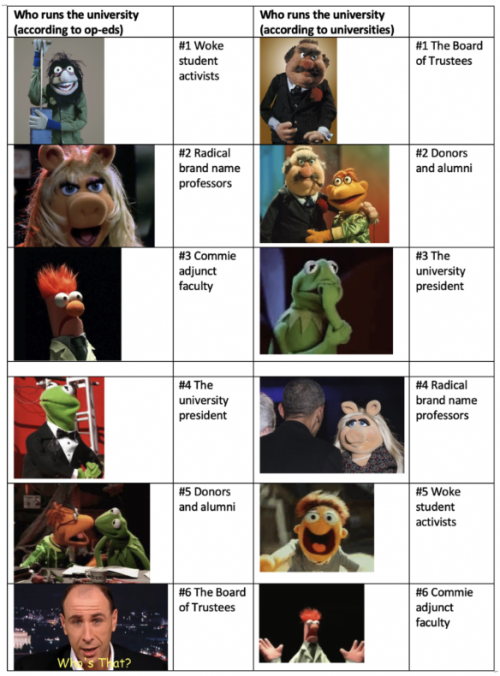Shhh. Don’t let my university administrators know about this post. It’s secret.
The University of Minnesota Morris has a new scheme for recruiting called Degree In Three. It’s promoting the idea that you can graduate in 3 years, rather than four. It’s all empty PR.
They aren’t lying. It’s true. It’s possible to complete your bachelor’s degree in three years at UMM.
What they’re not saying is that this is not a new program, students have always been able to do this. UMM allows considerable flexibility — there’s never been any kind of fixed year by year requirements where there is a necessary fourth year component to the degree. I was advising students 20 years ago about ways to finish an accelerated program. It just required either coming in with a buttload of college credits (entirely possible, Minnesota has Post-Secondary Enrollment Options (PSEO) where advanced high school students could get college credits), or you could just take overloads every semester. It wasn’t fun or easy, but it was doable. I usually tried to dissuade students from going that route, but now it’s an advertising gimmick.
Where I object is that nothing has changed. We certainly haven’t reduced graduation requirements. You still have to complete 120 credits; you can do that by taking 20 credits every semester for three years, or, as they suggest, 16 credits every semester + 8 credits of summer courses every year. So, basically, our Degree in Three program is about telling students to work harder faster.
One obstacle to this plan is that we don’t have the staffing to provide every course every semester, so students will have to plot a very specific path through the available courses to complete all the requirements. For instance, we don’t offer ecology in the spring here, because normally it’s so cold and snowy as to preclude any fieldwork — if you thought you’d just take it in spring of your third year, nuh-uh, you’re going to have to take it in a fourth year anyway. It also limits flexibility. Your schedule is so tight that if you fail to get in to a necessary course one year, the cascade of failed prerequisites may screw all of your plans. No, we’re not hiring additional faculty to cope with this problem.
A course overload is serious business. I’ve often had to advise students who sign up for too many courses at once, confident that they could handle it, and then they get sick one week or a relative dies and kaboom, suddenly, no they can’t handle it. I try to recommend that my students take only two lab courses at once, because they’re already a big time-suck, but I’ve had some students try to take three…they just disappear for a semester. It’s a miserable amount of work. Our students are ambitious over-achievers, so they’ll try and some will succeed, but I’m not here to crack whips.
The whole program is antithetical to the liberal arts experience. Students are supposed to have the opportunity to explore the world of ideas, taking classes in a specific degree-granting program, but also being able (even required and expected) to take a variety of courses outside that program. Oh, you’re trying to get a degree in biochemistry, but you’ve discovered that you love poetry and literature? So sorry, you don’t have time to take those courses before we trundle you out the door at an accelerated pace.
I get a fair number of prospective students coming to visit me (maybe not so many after you leak this to the administration) and I know I’m going to meet parents and students in a hurry who will ask me about this program. I will tell them that sure, I can advise them on how to speed-run through college, but I wouldn’t recommend it. The four year plan is much more comfortable and will allow you to enjoy college and develop a breadth of interests. I also know that some of those ambitious students will be back in my office in their second year panicking because they failed an o-chem exam and now think that revising their graduation plan will cost them that $20,000 that they imagined “saving” thanks to the Degree in Three plan.
I repeat, there’s nothing dishonest about the Degree in Three plan. It’s just nothing new, costs the university absolutely nothing, and is just about telling the students they can graduate faster if they work much harder. It’s not a great selling point, if you ask me.
They didn’t ask me, of course. I’ve been at faculty meetings where we irrelevant faculty make these same points, but hey, the advertising campaign is in the works.











